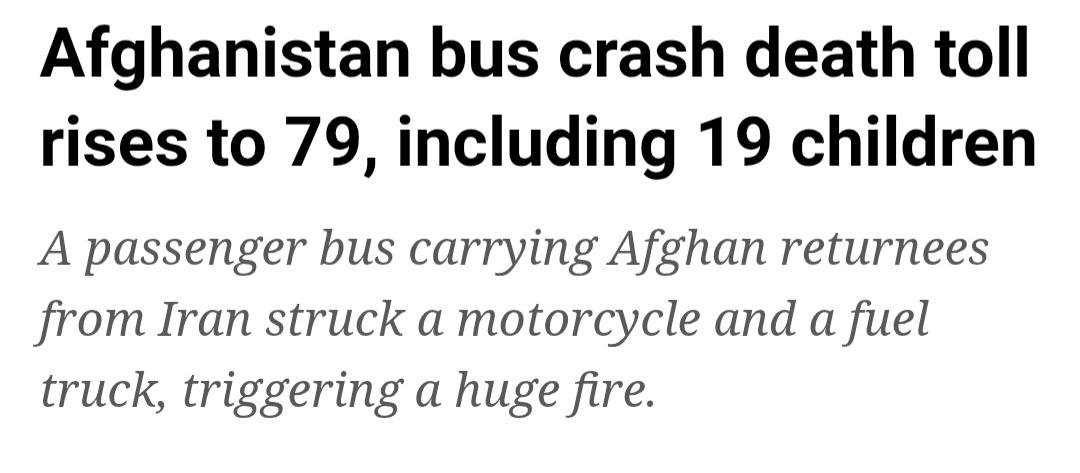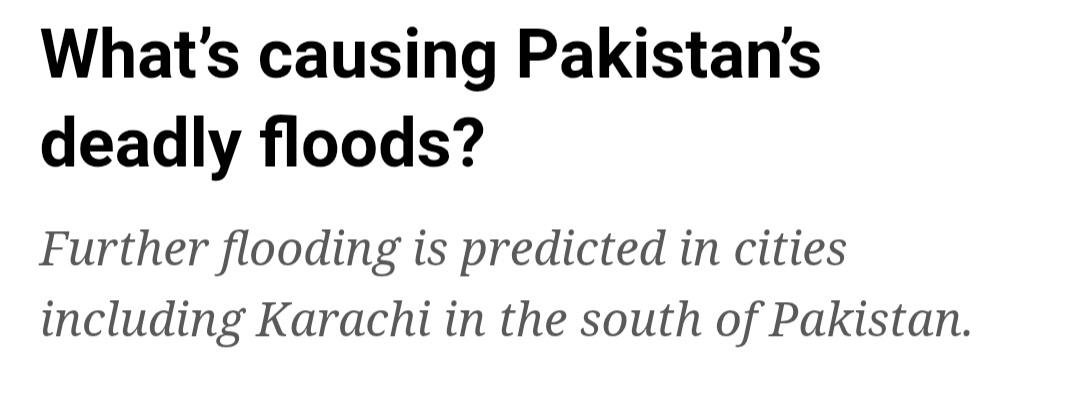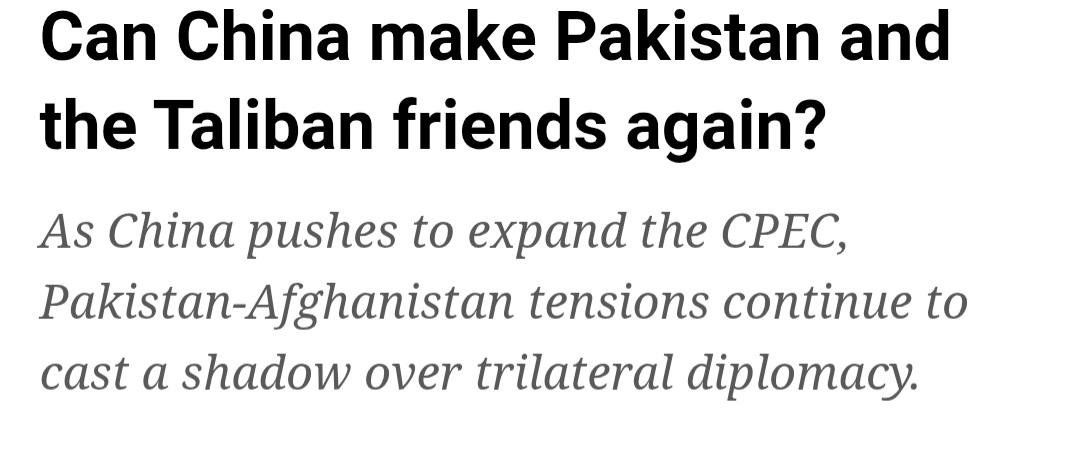This article presents major news events from Asia, particularly South Asia, as reported by Al Jazeera. This report provides a concise overview of everything you need to know, keeping you informed and up-to-date in one article. Here is everything important that happened from August 17th to August 23rd, 2025.
You May Like To Read: Pakistan in Crisis: CNN Reports on Chaotic Floods, But What About the Fair Courage?
Afghan Refugees Killed in Bus Accident

Source: Al Jazeera
On August 20, 2025, an unfortunate bus accident occurred in Afghanistan. In the Guzara district of Herat province, the crash took 79 lives, including 19 children. The vehicle carried Afghan returnees who had recently been expelled from Iran. On their way through the province, the bus collided with a motorcycle and a fuel truck. A massive fire ignited, engulfing the victims. The raging fire prevented rescuers from reaching the victims in time. Many of the deceased were women and children. The severity of the fire has made identification of the bodies difficult. The Taliban government has ordered an investigation of the tragedy.
The tragedy unfolds against the backdrop of mass forced expulsions. In 2025 alone, 1.5 million Afghan refugees have been deported. The sudden expulsion without any proper measures in place has increased risks. The road conditions in Afghanistan are poor, and vehicles are overcrowded. These conditions increase the likelihood of accidents. The Herat accident highlights both infrastructural weaknesses and poor policies regarding migrants. These geopolitical decisions have come at a very heavy human cost. The significant loss of life in this case highlights a need for better policies to be in place. There needs to be stronger safety protocols and, more importantly, better international cooperation. Migrants forced to return should be given sufficient time so they do not find themselves in dangerous circumstances.
The Herat tragedy also brings to attention the diminishing protection for migrants around the world. A recent U.S. court ruling has allowed Trump’s decision to end the Temporary Protected Status (TPS) of 60,000 Afghan migrants. Such policies perpetuate conditions of instability and precarity for vulnerable groups. The forced return of migrants, whether in the U.S. or Afghanistan’s neighboring countries, places people in high-risk situations. Subsequent unsafe travel and unstable reintegration can have fatal consequences. In this sense, the Herat bus disaster is not merely a tragic accident. It is a part of a larger pattern in which weakened migrant protections. Forced repatriations expose already fragile populations to preventable dangers.
The Deadly Flood Cycle in Pakistan

Source: Al Jazeera
In recent years, Pakistan has been hit with devastating and deadly floods. Since mid-August, different regions of the country have been flooded. In just a week, the calamity has claimed 400 lives. Torrential monsoon rains and sudden cloudbursts have caused severe devastation in KPK’s Buner district. Gilgit-Baltistan and Pakistan-administered Kashmir have also seen the worst of the catastrophe. Karachi, too, has been paralysed after a day of unrelenting rain. Roads all over the city were fully submerged, and millions were stranded. Flash flooding has swept entire communities. Rescuers have evacuated thousands of people from now-submerged villages.

Source: Al Jazeera
Climate change is the main driver behind the intensity of rainfall in Pakistan. Rising temperatures have altered monsoon patterns. Rainfall in the country has become more erratic and forceful. This also fuels cloudbursts, which dump 100 millimetres of rain in under an hour. Pakistan’s topography also makes the situation worse. With its steep mountainous terrains, melting glaciers, and fragile infrastructure, the impacts of climate disasters are intensified. Systematic weakness only adds to the plight of citizens. Poor drainage in urban areas and a lack of an early warning system cause damage that could have been lessened with proper measures. The people are left defenseless against the scale of such disasters.
The floods also bring attention to the human cost of poor preparation. In less than two months, Pakistan has had over 700 cases of flood-related deaths. Thousands of homes have been destroyed and livelihoods lost. While military and relief agencies are working tirelessly, it is not sufficient. Without proper preventative measures, the impacts of climate change cannot be tackled. The country is in dire need of comprehensive climate-change policies. If not implemented, Pakistan will continue to face recurring cycles of devastation. The 2025 floods stand as a stark reminder that the country is on the front line of the climate crisis, bearing the brunt of global inaction.
Can China Act as a Mediator Between Pakistan and Afghanistan

Source: Al Jazeera
China has positioned itself as a pivotal mediator between Pakistan and Afghanistan. Since the Taliban’s return to power in 2021, ties between Islamabad and Kabul have been strained. Pakistan has alleged that Afghan territory serves as a base for Fitna al-Khawarij (FAK) attacks. They claim that this has led to a sharp rise in cross-border attacks. Pakistan’s Institute for Conflict and Security reported 502 attacks in the first half of 2025. These resulted in 737 casualties, including 284 security personnel and 267 civilians. The figures showcase a 121% increase in deaths compared to 2024.
To address these deepening tensions, China orchestrated a trilateral meeting in Beijing on May 21. The meeting was arranged between the foreign ministers from Pakistan and Afghanistan. The talks produced a renewed willingness from both sides to restore diplomatic relations by exchanging ambassadors. It also showcases plans to move on with the China–Pakistan Economic Corridor (CPEC) into Afghanistan. This effort could weave together security, connectivity, and economic collaboration
The Sixth Trilateral Foreign Ministers Dialogue was held on 20 August 2025 in Kabul between Deputy Prime Minister/Foreign Minister of Pakistan @MIshaqDar50, Foreign Minister of China @MFA_China, and Acting Foreign Minister of Afghanistan @mfa_afghanistan, focusing on political,… pic.twitter.com/i6n8I2oYgr
— Ministry of Foreign Affairs – Pakistan (@ForeignOfficePk) August 20, 2025
Yet while Beijing brings considerable political weight and economic incentives to the table—leveraging its Belt and Road Initiative (BRI) tools to entice both parties—its role as a guarantor remains cautiously circumscribed. Analysts argue that unless Pakistan’s core security concerns, especially regarding militant sanctuaries, are tangibly addressed, the promise of deeper integration and project development may falter. One Pakistani diplomat acknowledged China’s unique influence but questioned whether Beijing is truly willing to serve as guarantor of a durable rapprochement.
Conclusion
The week’s events highlight the fragility of regional stability in South Asia. Forced migrations, climate-driven disasters, and cross-border tensions continue to expose deep structural weaknesses. Afghanistan’s bus tragedy underscores the human cost of poor migrant protections. On the other hand, Pakistan’s deadly floods reveal the need for immediate climate action. China’s efforts to mediate between Pakistan and Afghanistan show that diplomacy may offer pathways forward. However, real progress will depend on addressing root causes of insecurity. The goal should be in looking at investing in long-term solutions.
You May Like To Read: Information Warfare: How Israel Uses Media Warfare as a Tool Against Palestine?







